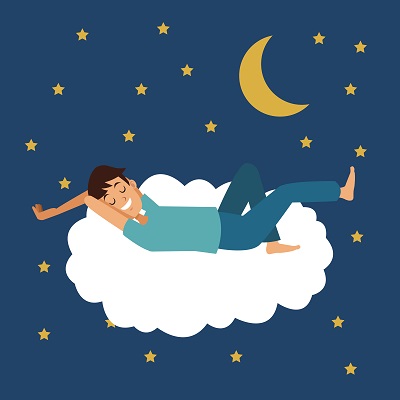 Sleep is the best gift you can give your body. Most people are more susceptible to colds, the flu, viruses, bacterial infections and chronic fatigue when they don’t sleep.
Sleep is the best gift you can give your body. Most people are more susceptible to colds, the flu, viruses, bacterial infections and chronic fatigue when they don’t sleep.
There are many ways lack of sleep can interfere with your immune system. Let’s look at some of them and come up with some common interventions that will help you get a better night of sleep.
Trouble Sleeping
Many people have trouble falling or staying asleep. Often people have trouble falling asleep because:
They have too much on their mind. To prevent going to sleep with a full head, start a journal you can review at night to help you release your worries before bed. You can’t solve anything while sleeping, so put your worries to rest before you put yourself to bed.
They Drink Before Bed
Drinking before bed is a big mistake. Make sure you take your last (alcoholic) drink at least 4 hours before bed. Avoid caffeinated beverages up to 6 hours before you go to sleep. This will make a very noticeable difference in the way you sleep.
They Exercise Too Close to Bedtime
You should exercise if you can first thing in the morning. Exercise in the morning gives your metabolism a boost for the day, and then allows you to sleep better at night. If you exercise too close to bedtime, you will feel too charged to sleep.
They Watch Television in Bed
The worst place to work or watch television is in bed. While it may “seem” comfortable, it can wreak havoc on your sleep. Some studies suggest the light from a television or the light emitted by a computer is enough to give a person chronic insomnia. This light tricks your brain into thinking it is time to wake up, so you have a harder time sleeping.
They Eat Too Much Protein Before Bed
Protein is great for building muscle and boosting energy. If you want to sleep and stay asleep however, you might consider trying a low protein high carbohydrate snack sometime in the hour or two before bed. Make sure you do not eat too much because this too can interfere with sleep.
A small snack however, may help keep your blood sugar levels aligned so you sleep better and longer. Many people find if they eat enough they do not wake nearly as often during the evening.
They Suffer Jet Lag
If you are a frequent flyer jet lag may be the cause of your insomnia. To help with this, ask your doctor about taking a melatonin supplement. This sometimes helps restore normal sleep patterns. You can also try adjusting your sleep schedule while on business or vacation so you do not mess up your normal sleep cycle rhythms.
This may mean going to bed one or two hours earlier or later than normal, but most people would agree the change is worth it. Jet lag among frequent flyers is a concerning and almost disabling problem if not handled properly.
If you find you do not have enough time to sleep, then you have to work on your schedule to create more time to sleep. There is no such things as “catch up” sleep, so don’t bother sleeping in extra on the weekends and working while sleep deprived during the week. It just doesn’t work that way. You have to commit to a regular sleep routine to realize adequate results. If you do not have a sleep routine consider creating one.
Your goal is to get 7-8 hours of sleep ideally, although some people function well on 6-7 hours and others on 8-9 hours. Get to know your body, so you can determine how much sleep gets you where you need to be… feeling healthy and energetic during the day.
Sleep is a Powerful Tool
When we get enough sleep our bodies are better prepared to take on stress and disease. You will find you can conquer colds and infections much easier when you are fully rested. Make sure you sleep as much as you can especially when you are sick. You may find you need one or two extra hours of sleep when sick each day until better.
If this is true, get some sleep. Call in to work and tell them you are sick, whether you have sick time or not. Most managers and companies would prefer to have you working at optimum capacity rather than spreading disease throughout the company. Chances are high if you work while ill you will only increase the severity of your disease.
You may then face a potentially serious infection, especially if you expose your weakened immune system to pollutants and bacteria on the job. Have you ever watched someone as they try to work while sick? Every sniffle and cough puts another person at risk for falling ill. Point that out to your manager if they give you trouble about staying home because of an illness.
Now you know some of the key tools for sleeping. Let’s review some commonly asked questions so you get as much information as you need about health so you can boost your immune system and fight disease naturally.






